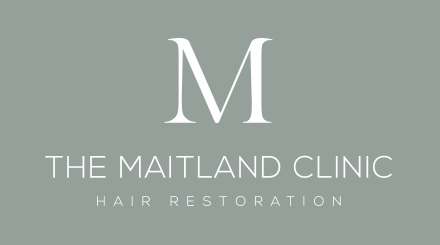Bigmac
Administrator
Staff member
Hair Loss Experiences will be attending the International Society of Hair Restoration Surgery Hosts 24th World Congress, September 28 - October 1, 2016, Las Vegas
Cutting-edge techniques and surgical gold standards in hair restoration spotlighted.
With interest in hair restoration at an all-time high, researchers are continually investigating new surgical techniques and applications to treat the growing number of people turning to medical and surgical hair restoration to treat hair loss. Now, world-renowned hair restoration and hair loss experts will gather in Las Vegas for the industry's premier educational event, as the International Society of Hair Restoration Surgery (ISHRS) hosts its 24th World Congress.
This four-day conference -- expected to draw more than 800 physicians and surgical assistants from around the world -- will be held September 28 - October 1, 2016, at Caesars Palace in Las Vegas, Nev., USA.
"From refinements in preserving donor hair to the use of new instruments and devices, the field of hair restoration surgery is thriving thanks to new discoveries that translate into even better results and higher patient satisfaction," said Marcelo Pitchon, MD (Belo Horizonte, Brazil), chairman of the 24th World Congress. "The ISHRS conference offers an unmatched learning environment for seasoned professionals, as well as those just beginning their careers in hair restoration. The hands-on, interactive sessions encourage lively discussion and the opportunity for members to further hone their skills."
A sampling of the hot topics to be presented at the ISHRS World Congress includes:
Highest Surgery Standards -- ISHRS members stand proud that surgical incisions and decisions should be done by surgeons and not technicians. Since the "turnkey model of delegation" was introduced five years ago, many ISHRS members are now seeing patients who unknowingly went to clinics where technicians -- not qualified hair restoration physicians -- operated on them, often illegally. Bad results ensued, and patients are now seeking help to get their previous surgeries corrected. Oftentimes, the patient's donor area has been overharvested and correction can be difficult or impossible. At the Congress, the panel "Delegation of FUE Surgery: Is It Ethical & Legal?" will discuss this paradigm.
Refinements in Surgical Techniques FUE and FUT -- As they continue to push the envelope with new concepts, new ideas and better techniques, ISHRS members are refining hair restoration surgery (and that's great news for patients). Many variables for follicular unit hair transplant surgery will be explored in detail -- including two donor harvest methods, popularly known as FUE (follicular unit extraction - donor area diffuse individual follicle extraction) and FUT-strip (donor centrally localized block extraction) -- including discussion of the grafts yielded by both techniques.
One of the surgical techniques that will be presented is the use of implanters, which have been popular instruments in Asia for many years used for implanting follicular unit grafts and are now catching on in the U.S. and other countries. FUE grafts are typically more vulnerable and fare better with less handling. As such, many are touting the use of implanters for implanting FUE grafts. Another surgical technique that will be discussed is preview long hair transplantation, which is a popular method in Brazil. Here, the surgeon keeps the transplanted hairs long for a result preview, and he or she doesn't shave or trim any scalp hair during surgery.
Female Hair Loss and Hair Restoration -- With more women turning to hair restoration every year, researchers are continually investigating new therapies and fine-tuning existing techniques to address the specific needs of the female patient. Further, hair loss physicians are seeing a rise in the number of diagnoses of Frontal Fibrosing Alopecia (FFA), which is a type of primary cicatricial (scarring) alopecia. This apparent emerging epidemic will be discussed.
Platelet Rich Plasma (PRP) to Stimulate Hair Growth -- As more and more patients are asking about PRP treatment for hair loss, hair restoration physicians are seeking more evidence-based data on its efficacy. Currently, there are no standardized protocols for its preparation or application. Differences in applications will be discussed, such as injection or micro needling -- and, if injecting, the level of injection (dermal, subcutaneous, or sub-epithelial) -- to get the PRP into the scalp tissue. Some experts argue that the application method alone can stimulate growth. For example, micro needling causes the body to go into wound healing mode and growth factors are released to repair the skin. In turn, these growth factors have an effect on hair follicles. The concentration of applications and frequency of applications will be discussed, as well as the type of results clinicians are seeing. In addition, survey data from a recent PRP survey that ISHRS members participated in will be shared and discussed.
JAK Inhibitors and Hair Regeneration -- Janus kinase inhibitors (JAK inhibitors) are medications used in treating cancer and various diseases, and now researchers are studying their therapeutic properties for hair loss. Currently, JAK inhibitors are showing some degree of success in combating alopecia areata due to their immunomodulating properties. Today, researchers are finding that JAK inhibitors appear to have a direct growth stimulating effect on hair follicles, which could be a new therapeutic option in treating androgenetic alopecia (also commonly referred to as male pattern baldness). Future applications for JAK inhibitors will be addressed in multiple presentations during the Congress.
About the ISHRS
The International Society of Hair Restoration Surgery (ISHRS) is a global non-profit medical association and a leading authority on hair loss treatment and restoration with more than 1,200 members throughout 70 countries worldwide. Above all, the ISHRS is dedicated to achieving excellence in patient outcomes by promoting the highest standards of medical practice, medical ethics, and research in the medical hair restoration industry. The ISHRS also provides continuing medical education to physicians specializing in hair transplant surgery and is committed to delivering the latest information on medical and surgical treatments to consumers suffering from hair loss, and most commonly from androgenetic alopecia male pattern baldness and female pattern hair loss. It was founded in 1993 as the first international society to promote continuous quality improvement and education for professionals in the field of hair restoration surgery.
SOURCE International Society of Hair Restoration Surgery
Cutting-edge techniques and surgical gold standards in hair restoration spotlighted.
With interest in hair restoration at an all-time high, researchers are continually investigating new surgical techniques and applications to treat the growing number of people turning to medical and surgical hair restoration to treat hair loss. Now, world-renowned hair restoration and hair loss experts will gather in Las Vegas for the industry's premier educational event, as the International Society of Hair Restoration Surgery (ISHRS) hosts its 24th World Congress.
This four-day conference -- expected to draw more than 800 physicians and surgical assistants from around the world -- will be held September 28 - October 1, 2016, at Caesars Palace in Las Vegas, Nev., USA.
"From refinements in preserving donor hair to the use of new instruments and devices, the field of hair restoration surgery is thriving thanks to new discoveries that translate into even better results and higher patient satisfaction," said Marcelo Pitchon, MD (Belo Horizonte, Brazil), chairman of the 24th World Congress. "The ISHRS conference offers an unmatched learning environment for seasoned professionals, as well as those just beginning their careers in hair restoration. The hands-on, interactive sessions encourage lively discussion and the opportunity for members to further hone their skills."
A sampling of the hot topics to be presented at the ISHRS World Congress includes:
Highest Surgery Standards -- ISHRS members stand proud that surgical incisions and decisions should be done by surgeons and not technicians. Since the "turnkey model of delegation" was introduced five years ago, many ISHRS members are now seeing patients who unknowingly went to clinics where technicians -- not qualified hair restoration physicians -- operated on them, often illegally. Bad results ensued, and patients are now seeking help to get their previous surgeries corrected. Oftentimes, the patient's donor area has been overharvested and correction can be difficult or impossible. At the Congress, the panel "Delegation of FUE Surgery: Is It Ethical & Legal?" will discuss this paradigm.
Refinements in Surgical Techniques FUE and FUT -- As they continue to push the envelope with new concepts, new ideas and better techniques, ISHRS members are refining hair restoration surgery (and that's great news for patients). Many variables for follicular unit hair transplant surgery will be explored in detail -- including two donor harvest methods, popularly known as FUE (follicular unit extraction - donor area diffuse individual follicle extraction) and FUT-strip (donor centrally localized block extraction) -- including discussion of the grafts yielded by both techniques.
One of the surgical techniques that will be presented is the use of implanters, which have been popular instruments in Asia for many years used for implanting follicular unit grafts and are now catching on in the U.S. and other countries. FUE grafts are typically more vulnerable and fare better with less handling. As such, many are touting the use of implanters for implanting FUE grafts. Another surgical technique that will be discussed is preview long hair transplantation, which is a popular method in Brazil. Here, the surgeon keeps the transplanted hairs long for a result preview, and he or she doesn't shave or trim any scalp hair during surgery.
Female Hair Loss and Hair Restoration -- With more women turning to hair restoration every year, researchers are continually investigating new therapies and fine-tuning existing techniques to address the specific needs of the female patient. Further, hair loss physicians are seeing a rise in the number of diagnoses of Frontal Fibrosing Alopecia (FFA), which is a type of primary cicatricial (scarring) alopecia. This apparent emerging epidemic will be discussed.
Platelet Rich Plasma (PRP) to Stimulate Hair Growth -- As more and more patients are asking about PRP treatment for hair loss, hair restoration physicians are seeking more evidence-based data on its efficacy. Currently, there are no standardized protocols for its preparation or application. Differences in applications will be discussed, such as injection or micro needling -- and, if injecting, the level of injection (dermal, subcutaneous, or sub-epithelial) -- to get the PRP into the scalp tissue. Some experts argue that the application method alone can stimulate growth. For example, micro needling causes the body to go into wound healing mode and growth factors are released to repair the skin. In turn, these growth factors have an effect on hair follicles. The concentration of applications and frequency of applications will be discussed, as well as the type of results clinicians are seeing. In addition, survey data from a recent PRP survey that ISHRS members participated in will be shared and discussed.
JAK Inhibitors and Hair Regeneration -- Janus kinase inhibitors (JAK inhibitors) are medications used in treating cancer and various diseases, and now researchers are studying their therapeutic properties for hair loss. Currently, JAK inhibitors are showing some degree of success in combating alopecia areata due to their immunomodulating properties. Today, researchers are finding that JAK inhibitors appear to have a direct growth stimulating effect on hair follicles, which could be a new therapeutic option in treating androgenetic alopecia (also commonly referred to as male pattern baldness). Future applications for JAK inhibitors will be addressed in multiple presentations during the Congress.
About the ISHRS
The International Society of Hair Restoration Surgery (ISHRS) is a global non-profit medical association and a leading authority on hair loss treatment and restoration with more than 1,200 members throughout 70 countries worldwide. Above all, the ISHRS is dedicated to achieving excellence in patient outcomes by promoting the highest standards of medical practice, medical ethics, and research in the medical hair restoration industry. The ISHRS also provides continuing medical education to physicians specializing in hair transplant surgery and is committed to delivering the latest information on medical and surgical treatments to consumers suffering from hair loss, and most commonly from androgenetic alopecia male pattern baldness and female pattern hair loss. It was founded in 1993 as the first international society to promote continuous quality improvement and education for professionals in the field of hair restoration surgery.
SOURCE International Society of Hair Restoration Surgery


























